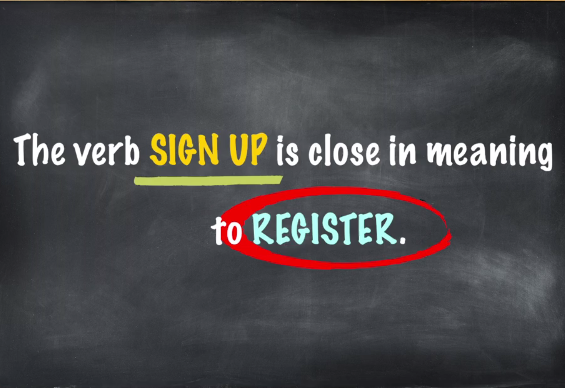All right. This is Everyday Grammar.I'm Alice Bryant.
好了,这里是《每日语法》节目。我是爱丽丝·布莱恩特。
And I was just signing up for a dance class.
我刚刚在报名参加一个舞蹈课。
Dancing is one of my favorite activities。
跳舞是我最喜欢的活动之一。
And this class one Best in Washington, D.C. this year.
而且这个课程还赢得了华盛顿特区今年的最佳课程。
Hmm, let me see...
嗯,让我看看...
I'll sign up for five classes for a special price.
我要以特惠价报名五个课程。
The verb "sign up" is close in meaning to "register".
动词“sign up”意思和“register”很接近。
But "sign up" sounds less formal and more conversational.
但“sign up”更加不正式、更加口语化。

Sometimes you pay money to "sign up" for something, like when you sign up for a class or a program.
有时候你需要付费报名参加某个东西,比如报名参加课程和项目。
But you can also sign up for free events, such as volunteer activities.
但你也可以免费报名参加一些活动,比如志愿者活动。
You may notice that, in all of these cases, I use the preposition "for".
你可能注意到了,在所有这些例子中,我是用了介词“for”。
When we name the thing for which we are signing up - a class, an event, a program - we use this preposition.
当我们提及所报名参加的东西时——课程,活动,项目——我们用这个介词。
Earlier, I told you I was signing up for a dance class.
之前,我告诉你我在报名参加一个舞蹈课程。
But, suppose someone asked a question and the thing being discussed is already known.
但是,假设有人问我一个问题,并且讨论的是我们已经知道的东西。
My friend asked me about a cooking demonstration, for example.
举个例子,我的朋友问我关于厨艺展示的事情。
Did you remember to sign up?
你记得报名了吗?
Yes, I just signed up! See you Saturday.
是的,我刚刚报名了!周六见。
In these cases, sign up ends the sentence.
在这个例子中,sign up结束了这个句子。
And I'm going to end this sentence.
我也要结束这个句子了。
That's Everyday Grammar.
以上就是今天的《每日语法》。












